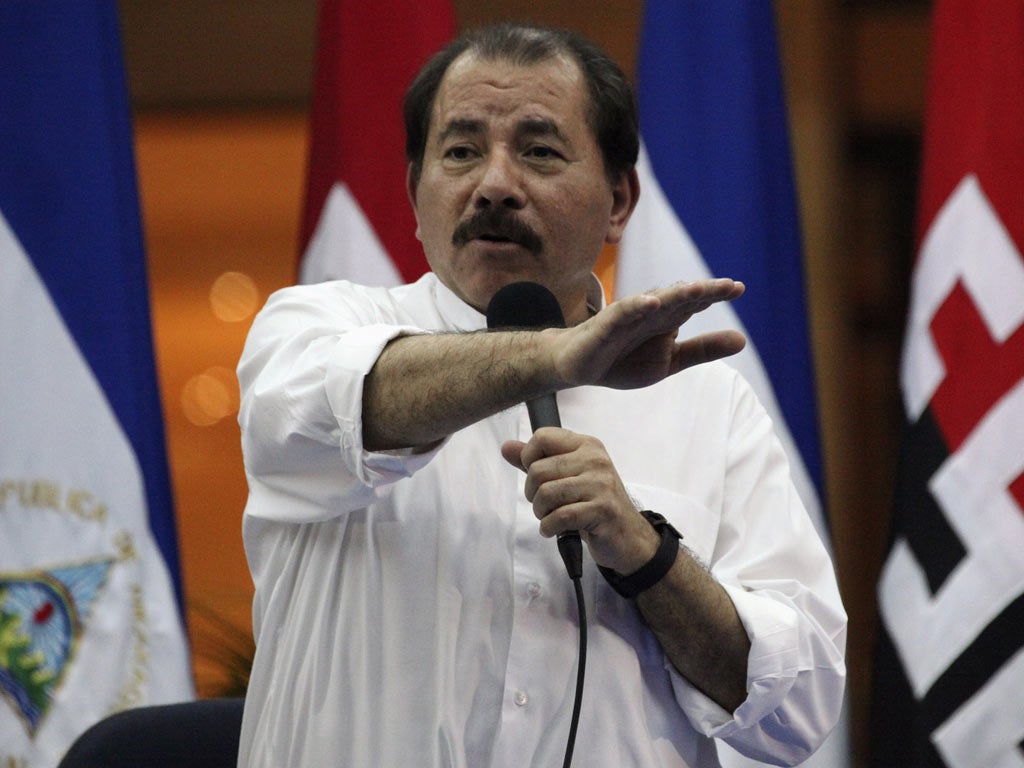Nicaraguan president refuses to bring election forward as street protests mount
Daniel Ortega has accused Catholic bishops of working with coup plotters

Your support helps us to tell the story
From reproductive rights to climate change to Big Tech, The Independent is on the ground when the story is developing. Whether it's investigating the financials of Elon Musk's pro-Trump PAC or producing our latest documentary, 'The A Word', which shines a light on the American women fighting for reproductive rights, we know how important it is to parse out the facts from the messaging.
At such a critical moment in US history, we need reporters on the ground. Your donation allows us to keep sending journalists to speak to both sides of the story.
The Independent is trusted by Americans across the entire political spectrum. And unlike many other quality news outlets, we choose not to lock Americans out of our reporting and analysis with paywalls. We believe quality journalism should be available to everyone, paid for by those who can afford it.
Your support makes all the difference.Nicaragua’s president has said he will not bring forward elections, despite street protests that have seen more than 300 deaths in the last three months.
Daniel Ortega, who said he is open to continuing talks mediated by the Roman Catholic Church, has denied that he controls paramilitary groups blamed for most of the killings.
He told Fox News in a recorded interview that they were supported by his political opponents and foreign interests.
That is counter to what international organisations and Nicaraguan human rights groups have documented.
Last week, the Organisation of American States adopted a resolution condemning human rights abuses committed by Nicaraguan police and armed pro-government civilians.
“We were elected by the voters,” Mr Ortega said. "The next election is not scheduled until 2021. And then we’ll have to see who will be voted in for the new administration.”
The president also denied responsibility for attacks on the Catholic Church, whose facilities and clergy have faced aggression in recent weeks.
Last week, in a speech on the anniversary of the Nicaraguan revolution, Mr Ortega accused Catholic bishops of working with coup plotters, saying that disqualified them as mediators.
But in the interview, the president said, “We invite the Catholic Church to continue with the dialogue so the dialogue can grow and develop in an open manner.”
Nicaragua’s bishops met behind closed doors earlier this week to discuss how to restart talks between the government and opposition.
Meanwhile there were marches in Managua both against and in favour of the government.
It was the "Day of the Student" in Nicaragua, a remembrance for four students killed in Leon by the National Guard during a protest in 1959.
A peaceful student march earlier this week ended in front of the locked gates of the private Universidad Centroamericana, one of several universities that have been closed since protests erupted in mid-April against since cancelled cuts to the country’s pension system.
In recent days Mr Ortega’s government retook control of the last student-held campus and snuffed out public displays of resistance in the city of Masaya.
AP
Join our commenting forum
Join thought-provoking conversations, follow other Independent readers and see their replies
Comments